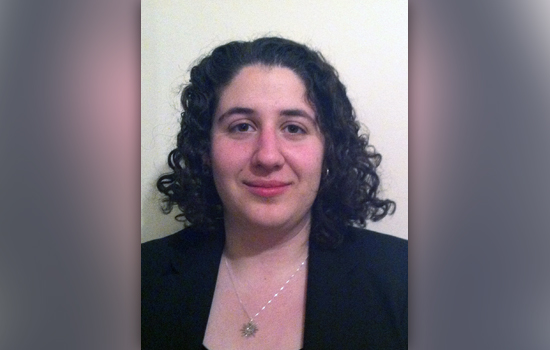MIT researcher, ‘Slate’ writer joins RIT
MIT researcher and ‘Slate’ writer Josephine Wolff joins RIT
Josephine Wolff will join RIT’s Public Policy and Computing Security Departments in August 2015, where she will teach and conduct research on cybersecurity and Internet policy.
Rochester Institute of Technology is embracing interdisciplinary education by hiring a faculty member who will teach for both the College of Liberal Arts and the B. Thomas Golisano College of Computing and Information Sciences.
Josephine Wolff, a leading researcher in cybersecurity and Internet policy, will join RIT in August as an assistant professor of public policy and faculty affiliate of the Department of Computing Security.
“Cybersecurity is by no means a purely technical problem,” said Wolff. “Policies made by governments and organizations have a profound impact on the technical measures we do and don’t use to protect our computer systems.”
Wolff was previously a graduate student researcher within the advanced network architecture group at MIT’s Computer Science and Artificial Intelligence Laboratory (CSAIL). She focused on developing security design patterns for application level “misbehavior,” and cybersecurity and Internet policy, specifically issues of attribution, accountability and anonymity for online identities.
She has also written on computer security topics for Scientific American, Newsweek and currently for Slate.
“RIT is a technical institute that is not only deeply committed to technology and engineering, but also to understanding the social and political context of that technology and the ways in which technical innovation influences—and is shaped by—fundamentally human stories,” said Wolff.
Wolff will teach general education courses for the Department of Public Policy in Policy Evaluation and Design, and Ethics, Values and Public Policy. She will also teach undergraduate and graduate courses in Cyber Security Policy and Law—core classes for computing security students. Understanding how to write security policies and examining cases that were used as precedent for current laws is essential for an interdisciplinary education in computing security.
“It is very important for our students to know the boundaries of when and what technologies can be used in real-life security incidences, so they can keep themselves out of trouble,” said Bo Yuan, associate professor and chair of RIT’s Department of Computing Security. “As security professionals, they also need to be able to recognize security policy lapses and fill in holes in policies and procedures.”
Wolff has interned with Microsoft’s Technology Policy Group, the White House Office of Science and Technology Policy and the Department of Defense. In 2011, she was honored with a Google Policy Fellowship to work at the Center for Democracy and Technology.
“We are very excited to have Josephine join our team,” said Sandra Rothenberg, a management professor and chair of RIT’s Department of Public Policy. “She brings an interdisciplinary approach to public policy that is the cornerstone of our program and will help strengthen our ties with the students and faculty interested in cybersecurity at RIT.”
Wolff is finishing a Ph.D. degree in engineering systems from Massachusetts Institute of Technology, focusing on understanding combinations of different types of defenses for computer systems, including the interactions among technical, social and policy mechanisms. She received a master’s in technology and policy from MIT and a bachelor’s degree in mathematics from Princeton University.
In 2012, RIT became one of the first universities in the nation to establish an academic department devoted solely to computing security. RIT has also been designated one of National Centers of Academic Excellence in Information Assurance/Cybersecurity Education by the National Security Agency and Department of Homeland Security.










